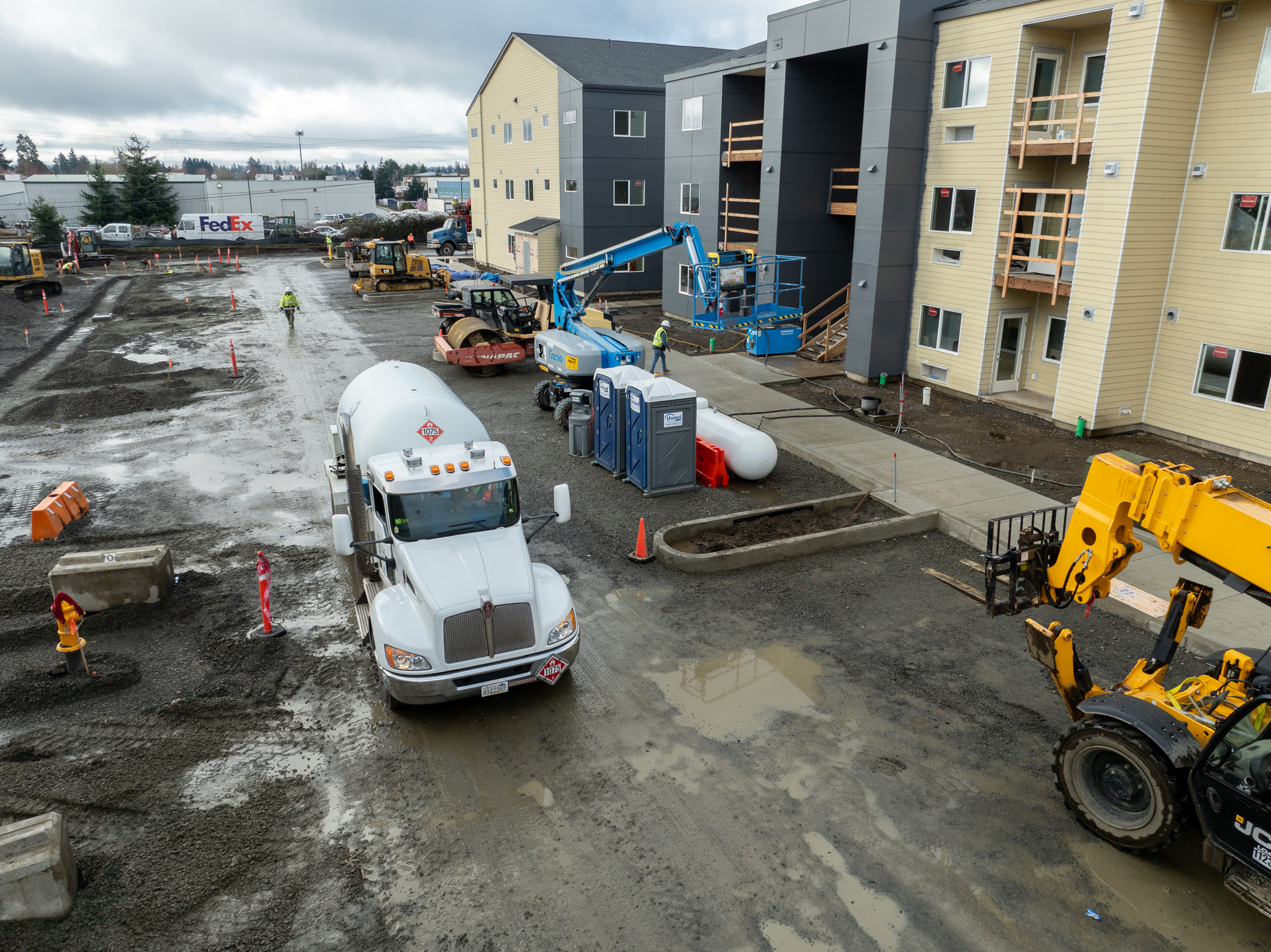
Propane: A Key Building Block for Hurley Construction
Case Study
Safe propane for your business
National delivery, local service
Tailored pricing to your business needs
There is one thing the Saveway Petroleum team always tries to stress when discussing potential heating system repairs or upgrades with a customer.
“Our service technicians make it a point to emphasize the value of switching from oil to propane heating equipment any time we are talking to a customer who is considering replacing their heating equipment,” said Bill Hickey, the General Manager of DCC Propane’s New England Market. “Even those who are just looking at replacing an oil tank, we encourage them to consider replacing their heating system at the same time with propane in order to have clean and efficient heat in the house.”
The environmental impact Hickey references is one of the main selling points behind an oil to propane furnace conversion. Propane is more efficient than oil as it emits approximately 13.5 percent less carbon dioxide per million BTUs. A typical oil furnace achieves around 83 percent annual fuel utilization efficiency (AFUE) while propane furnaces can easily achieve efficiency of more than 95 percent. AFUE is the most widely used measure of a furnace’s heating efficiency as it calculates the amount of heat actually delivered to one’s house compared to the amount of fuel supplied to the furnace.
“Switching to a unit fueled by propane is better for the environment because it burns more efficiently and therefore more cleanly,” Hickey said. “As propane furnaces are cleaner there is also less maintenance involved than with your traditional oil heating units.”
Propane heating systems also create additional space for the homeowner by eliminating the need for an oil tank, Hickey noted.
“It’s a space saver because you’re removing the oil tank from the basement and oil tanks can, of course, be pretty large and take up a lot of space,” he said. “With propane we can move to a wall hung unit and have the propane tank located outside the home.”
While space may not be a concern for homeowners with an outdoor oil tank, there are other problems they can encounter, especially in the cold weather. Heating oil doesn’t turn into a hard substance like ice but it can turn into a thick, gel-like wax when the temperature is around 16 degrees. Propane’s freezing point is minus-44 degrees, a temperature few, if any, will experience.
“An outside oil tank can gel in the real cold weather and that leaves less burnable oil,” Hickey said. “That’s not going to occur with propane. That means more reliability for a customer, especially when it counts.
“Many towns are also trying to get rid of outdoor oil tanks because they can leak and get rusty.”
In addition to the already stated benefits of converting from an oil to propane furnace, Hickey said there is also a cost savings involved. The exact amount is tough to calculate as it depends on the age and efficiency of the system being replaced, but the Propane Education and Research Council (PERC) estimated a propane furnace in a new 2,400-square-foot home will save more than $200 annually compared to its heating oil counterpart.
Assuming all is equal and one has the means to convert to propane, it is a “wise decision,” according to Hickey.
“It makes sense to make the switch to propane,” he said. “And that is better for the customer and the environment.”
CEO Matt Dantinne said he is proud DCC offers a heating system that is more efficient and better for the environment than oil furnaces.
“We are thrilled to give our customers the opportunity to reduce their carbon footprint and be more environmentally sensitive,” Dantinne said. “Propane furnaces deliver significant value and a new level of comfort to homeowners.”